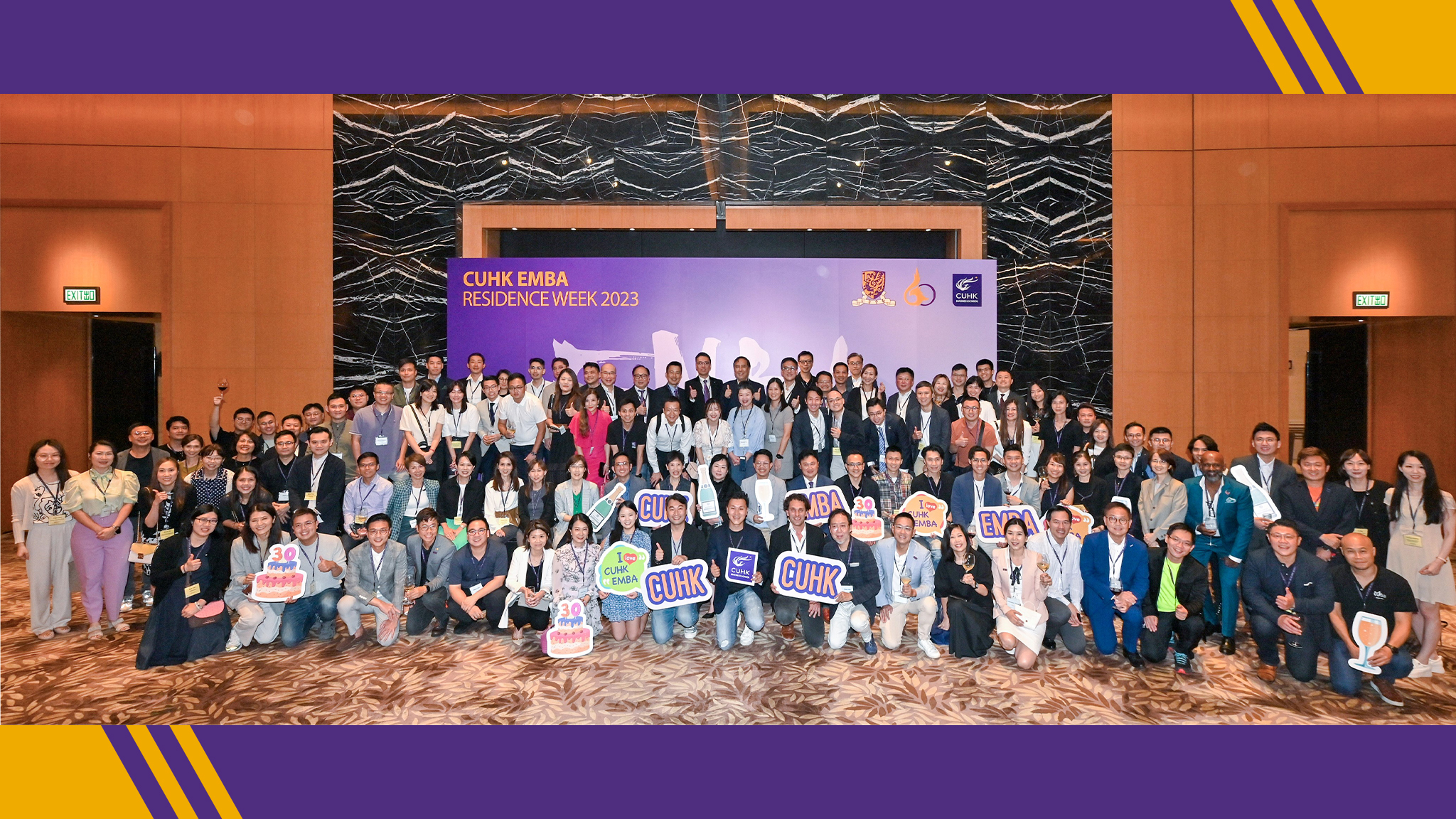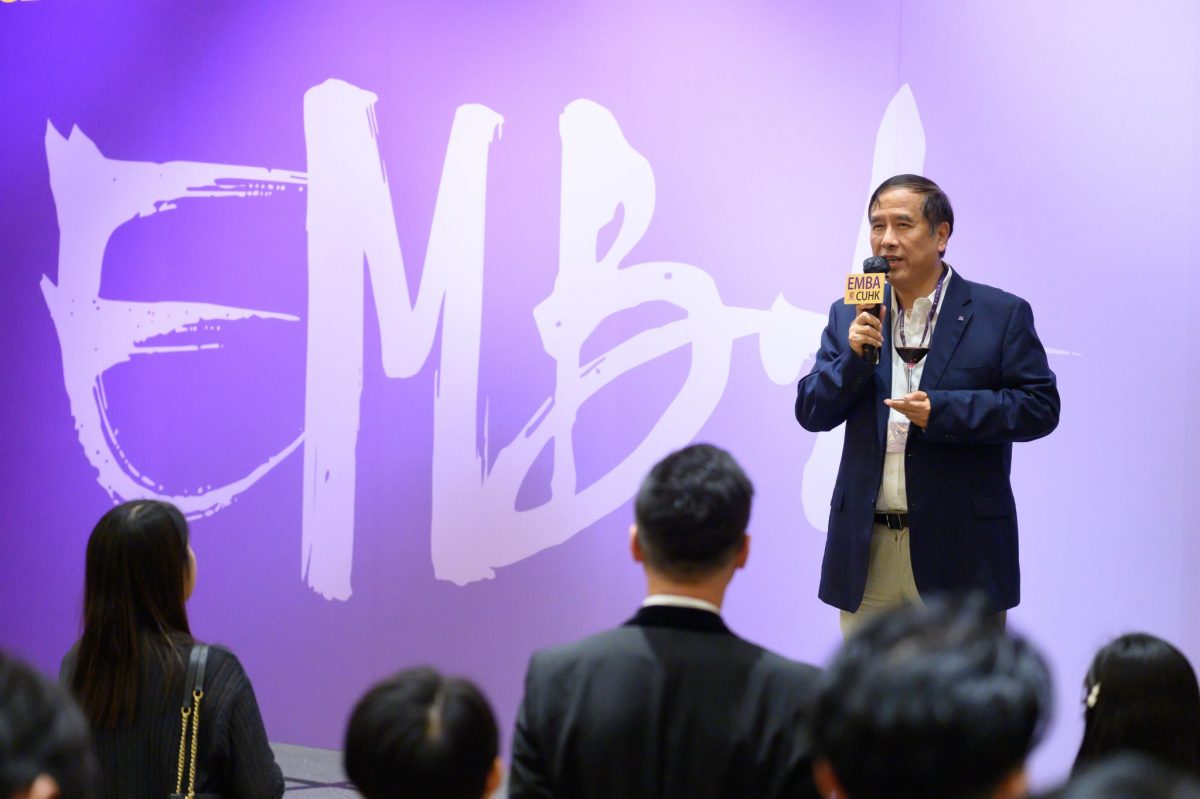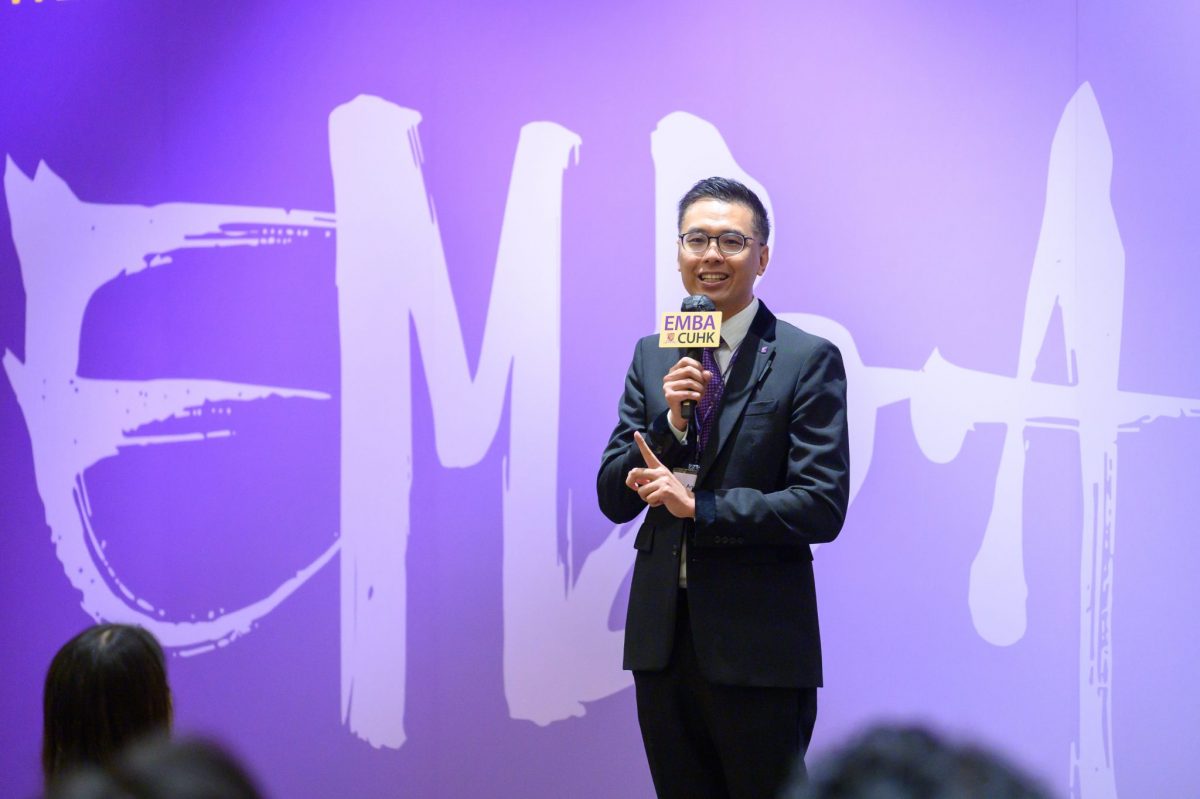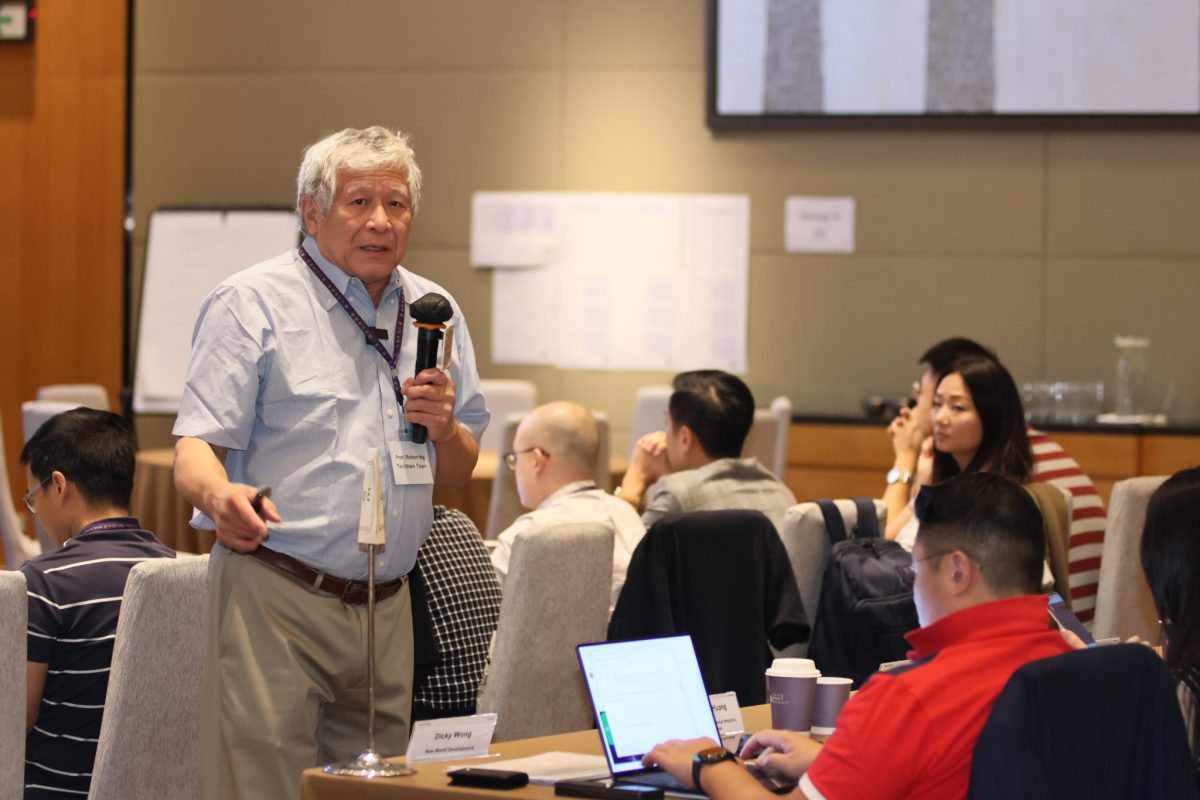CUHK EMBA Residence Week Empowers Students with Effective Leadership and Strategic Capabilities

The Chinese University of Hong Kong (CUHK) Business School EMBA Residence Week is a flagship programme in the EMBA curriculum. Successfully conducted from 25 to 30 August, the immersive programme brought together over 40 exceptional executives from the new cohort.
It aimed to inspire the participants to rethink the role of corporations in the evolving global landscape, the unique values that executives can contribute, and the ways in which leaders can influence others with their vision to accomplish organisational goals.
At the welcoming cocktail and dinner, Professor Lin Zhou, Dean of CUHK Business School, Dr Andrew Yuen, Director of EMBA Programme, along with current students and alumni, heartily welcomed the new cohort. The unforgettable evening gathered more than 130 enthusiastic participants, creating a vibrant platform for them to connect, exchange experiences, and share their aspirations for the forthcoming EMBA journey.
 Professor Lin Zhou, Dean of CUHK Business School
Professor Lin Zhou, Dean of CUHK Business School
 Dr Andrew Yuen, Director of EMBA programme
Dr Andrew Yuen, Director of EMBA programme
The rigourous programme took the new cohort through an extraordinary leadership experience. Participants were immersed in a series of highly interactive and engaging activities, including the internationally renowned TechMark Business Simulations, expertly conducted by its founder, Dr Robert Ng. TechMark Business Simulations is one of the first fully computerised commercial simulation programmes in executive education, designed to help companies establish a robust and sustainable competitive advantage.
 Dr Robert Ng, Founder of TechMark Business Simulations
Dr Robert Ng, Founder of TechMark Business Simulations
As the journey unfolded, participants were further inspired to cultivate authentic leadership, elevate their innovation capacity and embrace the mindset of a change leader, equipping them to thrive in a world characterised by volatility, uncertainty, complexity, and ambiguity. The programme not only fostered deep self-insight and social consciousness among the participants, but also transformed the cohort into a tightly-knit, supportive community.

